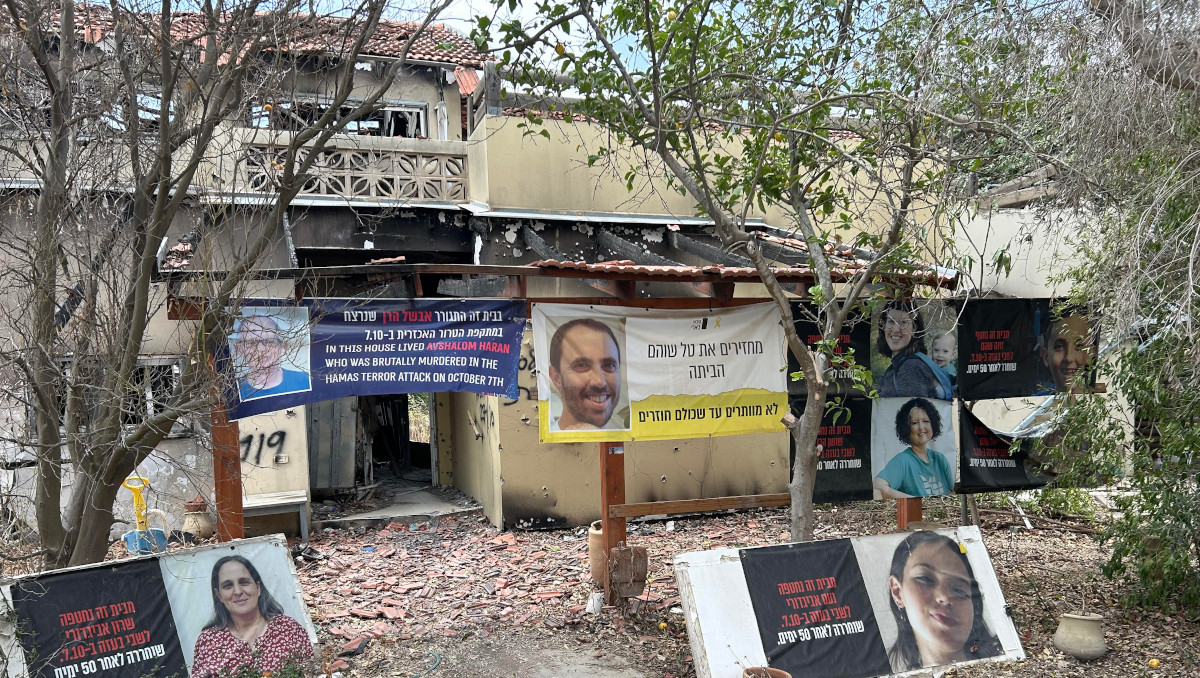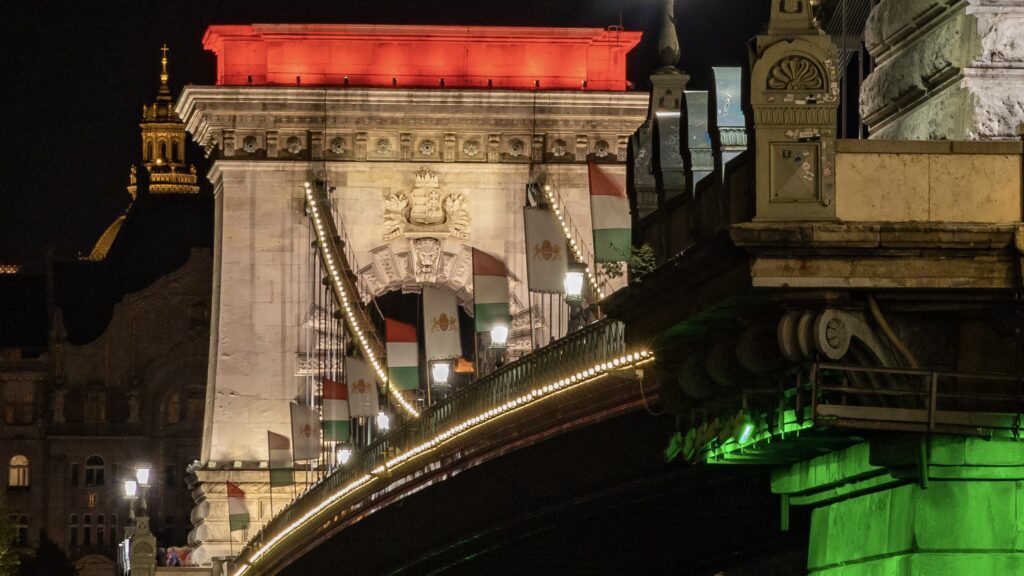7 October 2023 marked a turning point not only in Israel’s security situation but also in how antisemitism is perceived and defined. The terrorist attack by Hamas, which involved the massacre and kidnapping of innocent Jews, initially generated a wave of sympathy for Israel across much of the international community. However, Israel’s response — including the bombing of Gaza and a war that led to the deaths of tens of thousands of Palestinian civilians — triggered a psychological shift. As a result, global sentiment shifted once again.
Israel has perceived the narratives emerging from pro-Palestinian demonstrations worldwide, in the wake of the Gaza catastrophe, as not only anti-Israeli but also antisemitic. A central slogan of these protests—‘From the river to the sea’—has evoked, in the minds of many Jews, not merely a call for a Palestinian state at the expense of Israeli territory, or even the elimination of Israel as a state, but the eradication of the Jewish people themselves. Israel’s official interpretation now holds that the anger expressed at these demonstrations reflects not only anti-Zionist sentiment—that is, a rejection of the legitimacy of the Israeli state—but also ethnic hatred toward Jews. Critics of this view often deny such intentions, framing their opposition as criticism of Israel’s Gaza operation, but Israel sees this as a covert form of antisemitism.
‘Israel’s official interpretation now holds that the anger expressed at these demonstrations reflects not only anti-Zionist sentiment…but also ethnic hatred toward Jews’
One of Israel’s arguments in support of this assumption is that if Israel’s alleged humanitarian and war crimes in Gaza were indeed the root causes, then there would be no increasing threats and physical violence across Europe against people of Jewish origin who have assimilated into local societies and who have little to do with the state of Israel. Yet, they are being attacked in their own country because of their Jewishness—nominally because of Israel.

The other side of the coin is that critics of Israel’s actions in Gaza view the labelling of criticism as antisemitism as an immoral tactic. They argue that this approach makes it difficult to expose potential war crimes and blurs the line between genuine antisemitism and legitimate support for the Palestinian cause or rightful criticism of Israeli policies. In their view, the effect is comparable to that of ‘woke’ culture: it renders open dialogue and fact-based discussion of real grievances virtually impossible by creating new taboos.
The New Definition of Antisemitism and Its Exhaustion
The above interpretation of antisemitism had already been adopted by the Jewish state before the events triggered by Hamas, and the International Holocaust Remembrance Alliance (IHRA) formalized this definition in 2016. According to their definition, antisemitism includes attacks on the State of Israel when it is treated as a stand-in for the global Jewish community—but not when Israel is criticized for specific actions or policies. In other words, the Jewish state may be criticized in the same way as, say, Sweden, but if the criticism is directed at Israel because it is a Jewish state, it constitutes antisemitism. The 2016 IHRA definition states: ‘Antisemitism is a certain perception of Jews, which may be expressed as hatred toward Jews. Rhetorical and physical manifestations of antisemitism are directed toward Jewish or non-Jewish individuals and/or their property, toward Jewish community institutions and religious facilities.’ This definition is notably specific.
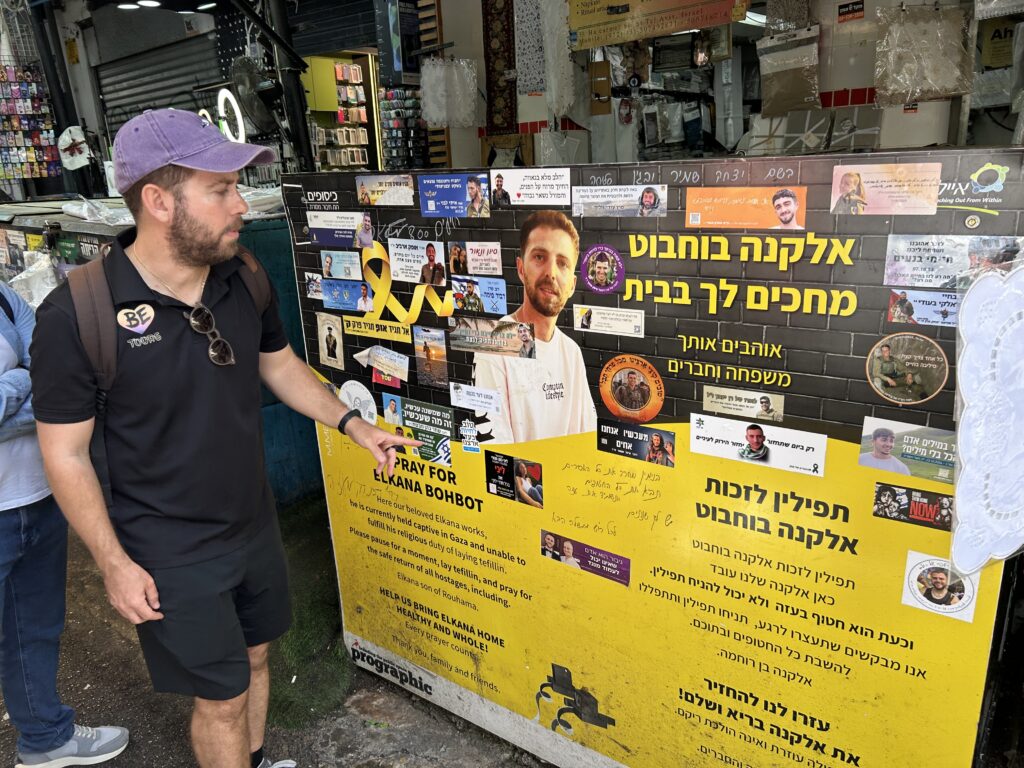
In recent years, there has been a sharp increase in attacks against Jews and antisemitic incidents worldwide—numerous data sets support this trend. According to one of them, the Anti-Defamation League’s Annual Report on Antisemitism 2025, the threat to Jews has risen since 2021 in the following seven countries with the world’s largest Jewish communities: Australia by 11 per cent, Argentina by 23 per cent, Germany by 75 per cent, the United Kingdom by 82 per cent, Canada by 83 per cent, France by 185 per cent, and the United States by 227 per cent.
‘Antisemitism is a certain perception of Jews, which may be expressed as hatred toward Jews’
The ADL’s data is based on verified incidents of attacks against Jewish individuals, businesses, synagogues, schools, and institutions—whether physical or verbal—ranging from online defamation to outright physical violence. The report also notes that most of these countries have minority protection laws in force. Nevertheless, according to the statistics, the sense of security among citizens of Jewish origin has significantly deteriorated—suggesting that state legislation is failing to prevent what the document refers to as a ‘tsunami of antisemitism’.
Finding Allies in Bad Times
Western Jewish organizations and Israeli authorities recognized the new reality reflected in recent statistics and concluded that the growing ‘wave’ of antisemitism could no longer be addressed with old methods. Instead, they resolved to seek a new approach. The framework for this already existed: the aforementioned International Holocaust Remembrance Alliance (IHRA)—an international organization founded in 1998—comprises 35 member states and eight observer states. Its mission is twofold: to preserve the memory of the Holocaust and to develop strategies, in cooperation with experts and national governments, to counter the social resurgence of antisemitism.

Moreover, the methods must be significantly more complex in order to achieve real societal impact—particularly in terms of mentality and public attitudes. It was concluded that as many countries as possible should adopt comprehensive social strategies capable of reaching people at multiple levels of government and public administration, with the involvement of civil society organizations and the broadest possible use of social media. This approach involves not only the legal condemnation of antisemitism, the prosecution of anti-Jewish crimes, the sanctioning of hate offences, and the police protection of Jewish institutions, but also educational programmes, the dissemination of factual information about Judaism, history, and the Holocaust, and the organization of events aimed at reducing social prejudice.
‘There has been a sharp increase in attacks against Jews and antisemitic incidents worldwide’
Israel thus has about a sixth of the world’s states on its side in the new fight against antisemitism, and these countries are also at different levels in terms of the extent to which they have provided adequate legal protection for their Jewish citizens under their jurisdiction. Hungary is among the frontrunners: the government adopted a National Strategy Against Antisemitism in 2024, in which it accepted the IHRA’s definition of antisemitism, reaffirmed the principle of zero tolerance for all antisemitic phenomena, and summarized the legislation adopted in order to protect Jewish life, including actions against antisemitic hate crimes, and the religious, cultural and educational support provided by the state to Jewish organizations.
Hungary Is a Key Ally of Israel
The measures taken by the Hungarian government over the past decade and a half have been recognized and highly appreciated by Israel. Among these notable gestures, the most recent stood out: timed to coincide with Prime Minister Benjamin Netanyahu’s official visit to Budapest in early April, Hungarian Prime Minister Viktor Orbán announced that Hungary would withdraw from the International Criminal Court (ICC), which had issued an international arrest warrant for the Israeli prime minister on suspicion of war crimes.
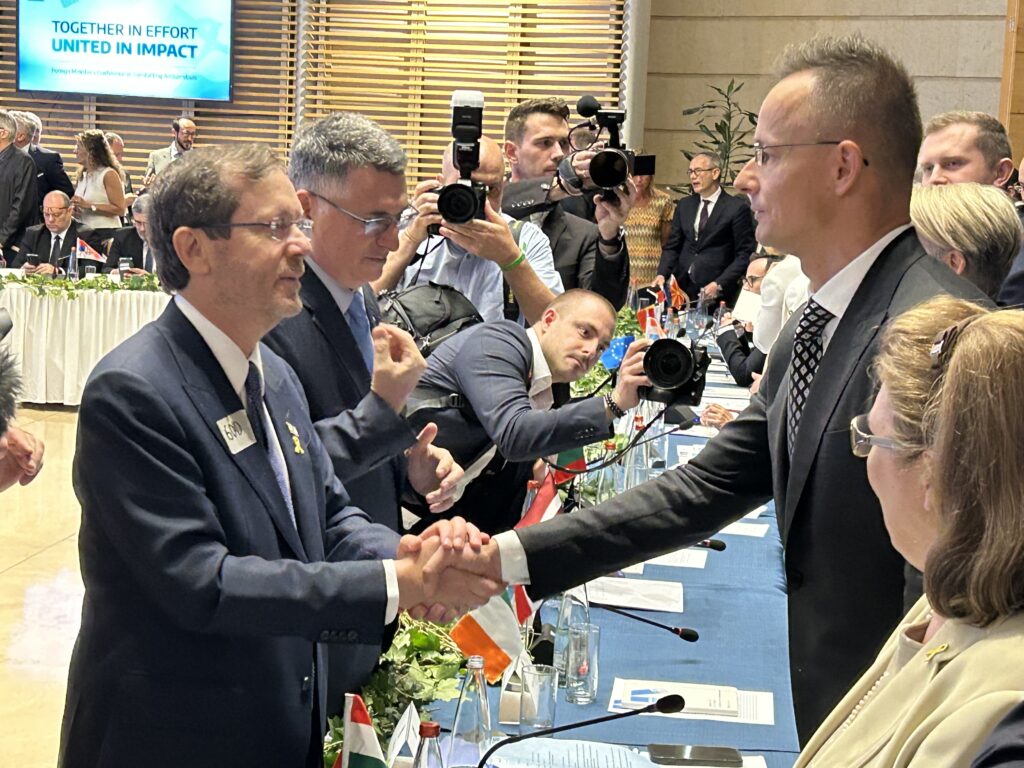
This Hungarian step was highlighted by the Hungarian Minister of Foreign Affairs and Trade at the international antisemitism conference organized by the Israeli Ministry of Foreign Affairs and the IHRA in Jerusalem at the end of May. Péter Szijjártó’s speech was particularly noteworthy because, while the ministers and state delegates who spoke before him focused on principles and goals, the Hungarian representative emphasized concrete actions. He drew the international audience’s attention to Hungary’s role as an active strategic ally of Israel. When international organisations such as the UN, the EU, or the ICC make hostile statements regarding Israel, Hungary consistently stands with the Jewish state through both words and deeds: it does not vote on resolutions condemning Israel, and when the ICC became a quasi-political body issuing partisan decisions, Hungary took a decisive step by withdrawing from the institution.
‘Hungary is among the frontrunners: the government adopted a National Strategy Against Antisemitism in 2024’
The host Israeli Foreign Minister held a bilateral meeting with only half a dozen of his colleagues from the invited countries, including the Hungarian Foreign Minister, during the conference. Before the meeting, Péter Szijjártó told our newspaper: ‘A new type of antisemitism is spreading in Western Europe, linked to the acceptance of illegal migration. Since there are no illegal migrants in Hungary, this type of “modern-day” antisemitism is also absent, and there is zero tolerance for it.’ He also added that Hungary opposes the anti-Israel measures planned within the EU, such as the initiative to suspend the operation of the Association Council between Israel and the EU, or the sanctioning of Israeli settlers.
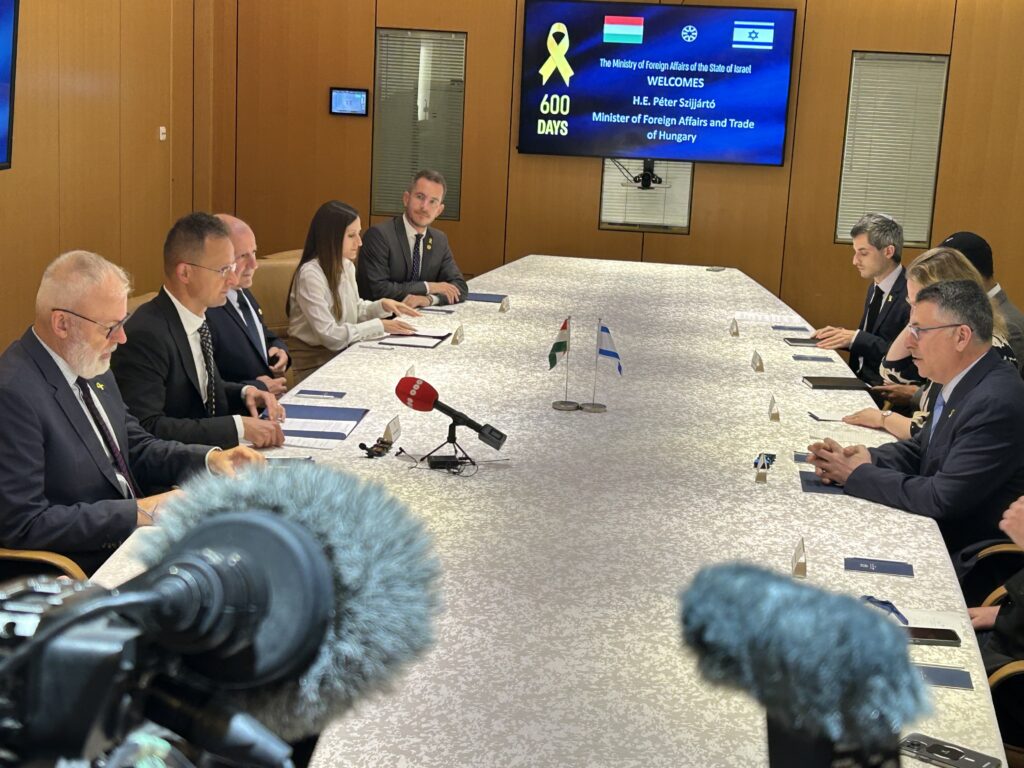
After the bilateral meeting, Israeli Foreign Minister Gideon Sa’ar spoke to the press, highlighting Hungary’s commitment to the alliance with Israel. He cited Hungary’s withdrawal from the ICC as irrefutable proof of this commitment, and thanked Hungary for giving Israel ‘a friend in Europe, in good times and bad’. In response, Péter Szijjártó confirmed that Hungary considers the State of Israel a strategic ally and rejects efforts within the EU to condemn and punish Israel. Finally, the minister welcomed the promising military-industrial cooperation between the two countries, adding: ‘Israel can always count on Hungary’s support.’
Netanyahu: Those Who Do Not Fight Antisemitism May Find Themselves in Trouble
The aim of the Jerusalem conference was for participants to discuss new manifestations of antisemitism and strengthen global intergovernmental cooperation to combat it.
In his opening speech, Gideon Sa’ar drew attention to the fact that today’s antisemitism targets Israel. The perpetrator of the terrorist attack that sparked the current war, Hamas, upholds not only an anti-Zionist but also an antisemitic document as its founding charter, which names the destruction of the ‘Zionist entity’ as its primary goal. ‘This would be another Holocaust, this time on our own land,’ the Israeli Foreign Minister said, interpreting this connection. He added that the conference also expresses the determination to fight antisemitism, not least because the survivors of the most recent Jewish catastrophe, the Holocaust, are slowly passing away, making it imperative to pass on the memory and warning of this tragedy to future generations.
‘Gideon Sa’ar…thanked Hungary for giving Israel “a friend in Europe, in good times and bad”’
Chief Rabbi of the United Kingdom Ephraim Mirvis warned in a speech peppered with personal stories that ‘anti-Zionism is the new antisemitism’. He stated that anyone who questions the right of the State of Israel to exist is also questioning the right of the Jewish people themselves to exist, since, according to the Scriptures, God chose this land for Israel, and the Land of Israel remains the centre of the Jewish religion to this day.

The keynote speaker of the evening was the Israeli Prime Minister, who took the stage amid heightened security measures, surrounded by four bodyguards, in a monumental tent set up in the courtyard of the Foreign Office building.
Benjamin Netanyahu began by recalling that his father, a historian, had said when Hitler came to power that antisemitism threatened not only Jews but the entire world. He then stated that he now believes the ‘antisemitic barbarity’ committed by Hamas on 7 October was an attack not only on Jews, but also on Western free societies and Western civilization itself. The current war is therefore, in his interpretation, not merely a multi-front conventional conflict, but a struggle between civilization and barbarism.
‘Before the extermination of a people, there is always a campaign to dehumanise them,’ the Prime Minister warned, adding that this was the case in Nazi Germany before the Holocaust, and that Iranian-funded propaganda is doing the same to Jews today. The speaker recalled that Ayatollah Khamenei calls Israel a ‘cancerous tumour’ in the Middle East that must be removed, and continued by saying that since Israel’s counterattack in Gaza, its critics have accused it in a way that effectively denies its right to defend itself.
‘The current war is therefore…not merely a multi-front conventional conflict, but a struggle between civilization and barbarism’
Israel is accused of massacring civilians, despite pre-announcing its strikes on Hamas targets and establishing safe zones for civilians to flee to. At the same time, Hamas deliberately fires on civilian targets and operates from buildings inhabited by Palestinian civilians, using the population as human shields. ‘This is a double war crime,’ Netanyahu said, who added that those who shout ‘Free Palestine!’ at anti-Israel demonstrations in Western countries do not realise they are actually demonstrating in favour of ‘Destroy Israel, destroy the Jews.’
At the end of his speech, the Israeli Prime Minister stated that Israel had set itself a dual goal in the Gaza war: freeing the hostages and eliminating Hamas. He believed this would be possible if military operations were carried out as quickly and efficiently as possible. He also warned the Western world that this war is not only about the physical survival of the Jewish state, but also about the security of Western free societies. If Westerners succumb to anti-Israel propaganda and fail to combat antisemitism, they could find themselves in serious trouble.
Related articles:

